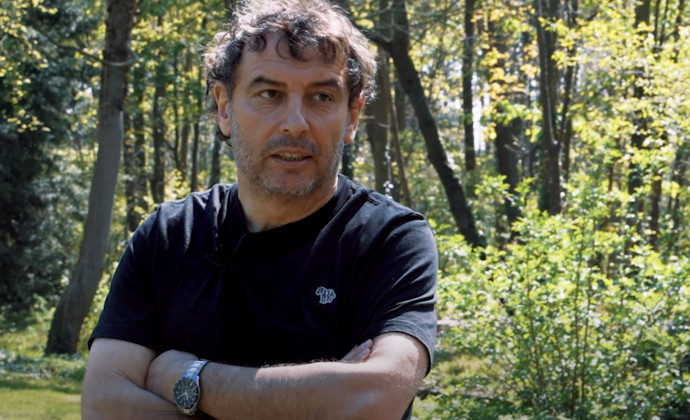In 2001, after the late entrepreneur and engineer Dr. Dmitry Borisovich Zimin sold his controlling stake in the telecommunications company Vimpelcom – the first Russian company listed on the New York Stock Exchange – he had a clear vision: To use the fortune life had gifted him to make the world a better place.
“With our family background so rooted in science and technology, we wanted to help people achieve more impact in these fields,” said Boris Zimin, Dmitry’s son and the president of the global private philanthropic organization Zimin Foundation.
In the following years, Dmitry Zimin committed 90% of his wealth to create an endowment for charitable endeavors.

At the time, his philanthropic activities primarily focused on Russia through the Dynasty Foundation.
“My father’s idea was not simply to give some charity, he wanted to do something for the public good,” Zimin said. “With our family background so rooted in the sciences, we wanted to do something related to the field.”
The foundation started to focus on supporting scientists and future teachers.
“More broadly, we wanted to help the general public understand how the world worked,” Zimin added. For over a decade, the Dynasty Foundation made significant contributions to support thousands of students, scientists, and teachers.
The organization also published more than 100 popular science books and sponsored numerous events aimed at promoting the love for science and making it more accessible.
However, over the course of the years, things changed, also influenced by the geopolitical landscape.
In 2015, the Russian Ministry of Justice labeled the Dynasty Foundation as a “foreign agent,” prompting the Zimin family to make the difficult decision to cease the Foundation’s operations.
In the aftermath, the Zimin Foundation took up the mantle, shifting its focus beyond the borders of Russia to global initiatives, while also broadening the scope of its activities.
“We understood that history and the social sciences are also fundamental fields that people should be familiar with to create a better society,” Zimin said. “For this reason, we started to support not only projects related to the hard sciences but also programs in the fields of social sciences, social skills, free speech, and critical thinking.”
“If we look at what has been happening in Russian society, we can see the consequences triggered by the lack of these essential social skills,” he added.
After Russia invaded Ukraine in 2022, the Zimin Foundation also started to support Ukrainian refugees and people leaving their countries as a result of the war.
“We had to help,” Zimin said. “My father was born and grew up in the Soviet Union. He understood very well that its system was not for the benefit of its people and that is why he wanted to do something to change his country. Unfortunately, we see how Russia today still faces huge problems.”
The Zimin Foundation is focusing on helping students and scientists who have to restart their careers in another country.
“They are facing many challenges,” Boris said.
A few years ago, the Zimin Foundation also began to look into Israel and explore how the organization could get involved there.
“Our idea was to work with smart people on a project that would make the world a better place,” he said. “Tel Aviv University had the technology, human capital, and the ability to pursue the mission.”
As a result, the Zimin Foundation supported the creation of Tel Aviv University’s Zimin Institute for Engineering Solutions Advancing Better Lives.
The institute aims at funding selected research projects toward generating applied solutions to the world’s most pressing challenges in healthcare, medicine, digital health technologies, brain studies, healthy longevity, and related fields.
“The Former Soviet Union was a place where ideology was put in the center, as opposed to human beings,” Zimin noted. “In Israel, ideologies are also important, but they are devoted to the people. This inspires a lot of ideas and we are very happy to work in Israel.”
Asked about the future of education, Zimin highlighted how the world is changing fast, including in the field of education.
“When I was in school, there was a curriculum and we were expected to learn certain subjects and be able to give certain answers, now it is more challenging,” he said. “Algebra can appear difficult, but in the end, it is just a matter of formulas. Life is much more complicated than that.”
“I believe that the most important skill that needs to be taught is critical thinking,” he added. “Our children should learn how to address difficult questions and decide what is good and what is not,” he concluded.
This article was written in cooperation with Tel Aviv University.
